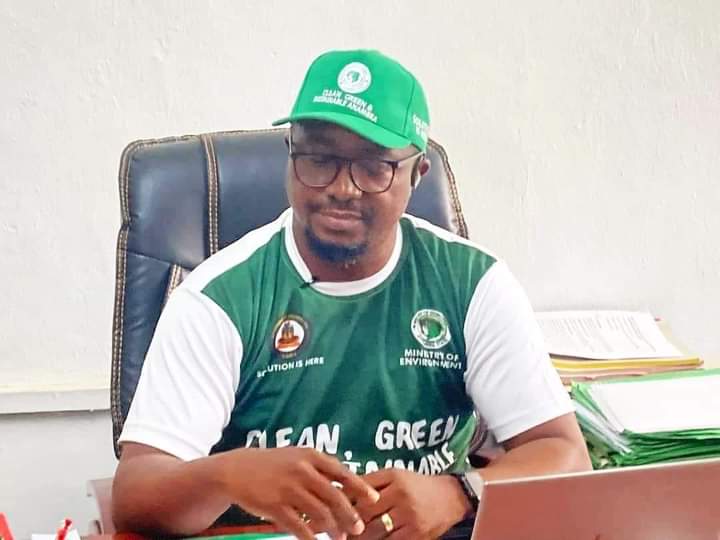Place your adverts here on InfoDig @ low rates; banner ads, sponsored links and guest articles etc. Contact us
Isuma Mark
The Human Rights Writers Association of Nigeria (HURIWA) has commended the proposed bill before the federal House of Representatives seeking to give arms and ammunition to the men and officers of the Federal Road Safety Corps (FRSC).
HURIWA said, the bill, if passed will unduly lead to the proliferation of arms in the hands of too many unprofessional and largely untrained persons which may increase the incidents of the use of extrajudicial killings of citizens.
The group observed on Monday in a statement signed by its National Coordinator, Emmanuel Onwubiko.
The Rights group stated that recently, most Nigerians have observed that motor park touts are being recruited into the Federal Road Safety Commission of Nigeria which HURIWA considers as a high threat to the national security interest.
HURIWA faulted the modalities and quality control and standards enforced in the recruitment process by the Federal Road Safety Corps just as the Rights group said the focus of the National Assembly should be on sanitising and enhancing the professionalism of the current Federal Road Safety Corps.
HURIWA recalled that in recent times, the Road Safety Corps of Nigeria has been rated as one of the most corrupt Federal government agencies.
Recall that a bill to establish a Road Safety Special Armed Squad under the Federal Road Safety Corps (FRSC) recently passed its second reading in the House of Representatives.
The bill has instigated considerable public debate and widespread rejection.
With the bill’s second reading recently passed in the House of Assembly, concerns are mounting over the potential implications of arming road safety officials.
The bill, sponsored by Hon. Abiodun Derin Adesida (APC, Ondo) and Hon. Olaide Lateef Muhammed (APC, Oyo), reportedly aims to allow FRSC officials to carry firearms for the protection of FRSC infrastructure and personnel, not for general enforcement.
Many Nigerians worry that this expansion of authority could lead to abuse of power, intimidation, and potentially violence, especially considering Nigeria’s current socio-economic challenges.
HURIWA wonders why the police and the military are not called upon to protect those road safety infrastructure if need be instead of allowing for armed proliferation which may empower some persons with criminal records to deploy these weapons for criminality.
Established by the FRSC Act of 2007, the Federal Road Safety Corps was designed primarily to ensure road safety through regulation and education, not through force.
The FRSC’s statutory functions, outlined in Part One of the Act, section 5(h), focus on making Nigeria’s highways safer through vehicle registration, driver’s licensing, ensuring vehicle roadworthiness, and enforcing the highway code.
Furthermore, sections 5(i) and 5(j) underscore the FRSC’s role in providing emergency response services. These sections mandate the FRSC to establish roadside clinics and ambulance services, offering free medical treatment for accident victims to protect lives.
The approach is consistent with global best practices in road safety standards, where the focus of similar agencies remains on road safety and emergency response rather than armed enforcement.
Section 14 of the FRSC Act outlines the equipment FRSC officers are permitted to use, including uniforms, communication gadgets, motor vehicles, and medical supplies.
However, Part Two, Section 19, does provide a conditional right for FRSC officials to bear arms in high-security-risk areas, acknowledging the need to protect officials in certain extreme environments.
The group said it believes “passionately that this toxic bill lacks any utilitarian quality even as it has understandably intensified concerns about firearm intimidation and potential abuses against ordinary Nigerians given some proven but despicable cases where the FRSC officials have exhibited unprofessionalism while giving hot pursuit to citizens and road users.
“We note that evidence abounds by way of viral videos of the illegalities committed by some operatives of the Federal Road Safety Corps that lack all modicum of discipline and professionalism.”
HURIWA recalled that the FRSC has long been at the mainstream of Nigeria’s road safety infrastructure, focusing on traffic regulation, accident response, and driver education.
HURIWA said what should be done is for the Nigerian Police Force, the military, and importantly, the Nigerian civil defence corps to be obligated to protect road safety infrastructure if the need arises.
It recalled that the bill currently before the House seeks to extend this conditional arms-bearing right beyond high-risk situations, creating an FRSC Special Armed Squad to protect FRSC assets and personnel more broadly.
HURIWA thinks that this amendment represents a fundamental departure negatively away from the FRSC’s core mandate, raising questions about whether arming road safety officials is necessary or appropriate.
The group noted that recorded instances of extortion by FRSC highlight the argument against arming the road safety officials.
It urged the National Assembly to “perish the thought of letting this dangerous bill see the light of the day.”















